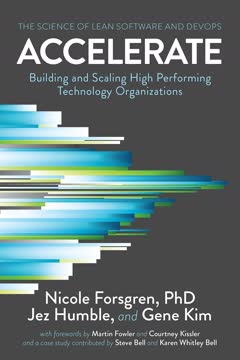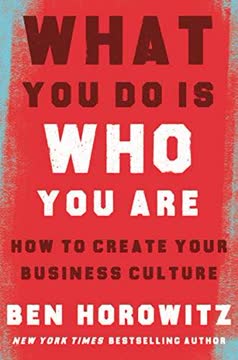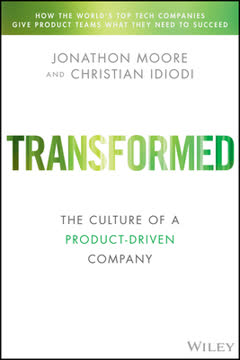Key Takeaways
1. Foster a culture of freedom and responsibility
The most important job of management is to focus really intently on the building of great teams.
Empower through trust. Instead of implementing rigid policies and procedures, give employees the freedom to make decisions and take ownership of their work. This approach fosters innovation, agility, and high performance. Encourage people to exercise their full powers by challenging assumptions, speaking up about ideas and problems, and taking calculated risks.
Cultivate adult-like behavior. Treat employees as responsible adults capable of making sound judgments. Remove unnecessary approvals and bureaucratic processes that hamper speed and creativity. Focus on clear communication about goals and challenges rather than micromanaging how work gets done. This creates an environment where people feel trusted and motivated to contribute their best efforts.
2. Communicate openly about business challenges and strategy
Every single employee should understand the business.
Transparency builds trust. Regularly share information about the company's performance, competitive landscape, and strategic priorities with all employees. This helps everyone understand how their work contributes to larger goals and fosters a sense of ownership and alignment.
Create a learning culture. Instead of formal training programs, focus on helping employees deeply understand the business model, customers, and industry dynamics. Encourage questions and open dialogue about challenges. This approach develops critical thinking skills and enables people to make better decisions autonomously.
- Hold regular all-hands meetings to discuss company performance and strategy
- Encourage leaders to share both successes and failures openly
- Create opportunities for cross-functional learning and collaboration
3. Practice radical honesty in all interactions
Humans hate being lied to and being spun.
Honesty builds trust and respect. Encourage direct, timely feedback between colleagues at all levels. This diffuses tensions, discourages politicking, and leads to faster problem-solving. While initially uncomfortable, most people come to appreciate and thrive in an environment of radical candor.
Model the behavior. Leaders must set the example by being open about mistakes, soliciting feedback, and having difficult conversations promptly. Create mechanisms for regular peer feedback, such as "Start, Stop, Continue" exercises. Coach people on how to deliver constructive criticism effectively and receive it graciously.
- Mandate face-to-face conversations for addressing interpersonal issues
- Discourage complaining about colleagues behind their backs
- Recognize and reward those who speak up constructively about problems
4. Encourage vigorous debate based on facts
Have an opinion; take a stand; be right most of the time.
Cultivate intellectual discourse. Foster an environment where people develop strong, fact-based opinions and argue them vigorously. This leads to better decision-making and surfaces valuable insights. Emphasize that the goal is to find the best solution, not to win arguments.
Structure productive debates. Create forums for presenting opposing viewpoints on key issues. Encourage people to play devil's advocate and argue against their own positions. Use data to inform discussions, but recognize its limitations. Focus debates on serving customers and achieving business results, not personal agendas.
- Hold regular "Consumer Science Meetings" to debate product decisions
- Break into small groups to encourage participation from all team members
- Ask probing questions like "How do you know that's true?" to deepen discussions
5. Build teams for future needs, not just present demands
You've got to hire now the team you wish to have in the future.
Anticipate future skills gaps. Regularly envision the team you'll need six months to a year from now. Identify the skills, experiences, and capabilities required to meet upcoming challenges. This proactive approach ensures you're always building toward future needs rather than just filling current vacancies.
Be willing to evolve. Recognize that as companies grow and change, the skills needed may shift dramatically. Be prepared to bring in new talent with different experiences, even if it means parting ways with good people whose skills no longer fit. Focus on building the best possible team for where the company is headed, not preserving the status quo.
- Conduct regular "future team" visioning exercises with leaders
- Identify key roles that will be critical for upcoming strategic initiatives
- Create a pipeline of potential hires for anticipated future needs
6. Hire and retain only high performers in every role
Someone really smart in every job.
Prioritize talent density. Focus relentlessly on having exceptional performers in every single position. This creates a virtuous cycle where high performers attract and motivate other high performers. Be willing to leave positions open rather than settling for mediocre hires.
Make hiring a core competency. Train all managers to be expert recruiters and interviewers. Involve team members in the hiring process to ensure cultural fit. Move quickly to make offers to top candidates. Create an exceptional candidate experience, even for those you don't hire.
- Set high bars for performance in every role, not just senior positions
- Invest in building an internal recruiting team of industry experts
- Encourage employees to refer high-caliber candidates from their networks
7. Pay top talent competitively based on their value
Pay people what they're worth to you.
Rethink compensation models. Instead of relying solely on salary surveys or internal equity, consider what an employee's skills and contributions are truly worth to your business. Be willing to pay top of market for critical roles that drive outsized value. This approach helps attract and retain the best talent.
Decouple pay from performance reviews. Make compensation decisions based on the employee's current market value and future potential, not just past performance. Encourage people to interview elsewhere regularly to gauge their market worth. Be transparent about compensation philosophy to build trust.
- Identify roles where paying above market rate could drive outsized returns
- Consider the opportunity cost of losing top performers to competitors
- Regularly reassess compensation to ensure it keeps pace with skill development
8. Implement frequent, informal performance feedback
Taking Performance Evaluation Ten Games at a Time
Continuous improvement focus. Replace annual performance reviews with frequent, informal check-ins. This allows for timely course corrections and better aligns with the fast pace of business today. Use data and peer feedback to provide a well-rounded perspective on performance.
Coach for success. Frame feedback conversations around helping people improve and grow, not just evaluating past performance. Focus on specific behaviors and results rather than general criticisms. Encourage self-reflection and goal-setting as part of the process.
- Hold brief performance discussions every 4-6 weeks
- Use real-time data and metrics to inform feedback conversations
- Solicit input from peers and cross-functional collaborators
9. Be proactive about necessary staff changes
Be a great company to be from.
Embrace necessary transitions. Recognize that as companies evolve, some roles may become obsolete or require different skills. Be honest with employees when their skills no longer fit future needs. Help them transition to new opportunities, either internally or externally.
Handle departures gracefully. When it's time for someone to move on, communicate openly and treat them with respect. Focus on celebrating their contributions rather than dwelling on shortcomings. Build a reputation as a great place to have worked, which in turn helps attract top talent.
- Regularly assess team composition against future business needs
- Have honest conversations early when someone's role is likely to change
- Provide support for outgoing employees (e.g., job search assistance, recommendations)
Last updated:
FAQ
What's "Powerful: Building a Culture of Freedom and Responsibility" about?
- Author's Experience: The book is written by Patty McCord, who shares her experiences from her time as Chief Talent Officer at Netflix.
- Cultural Transformation: It focuses on building a high-performance culture that embraces freedom and responsibility.
- Practical Guide: The book serves as a guide for team leaders at all levels to adapt to rapid changes in business.
- Netflix Case Study: While not a memoir, it uses Netflix as a case study to illustrate the principles discussed.
Why should I read "Powerful: Building a Culture of Freedom and Responsibility"?
- Innovative Management Practices: It offers insights into innovative management practices that challenge conventional wisdom.
- Real-World Examples: The book provides real-world examples and stories from Netflix to illustrate its points.
- Actionable Advice: Readers receive actionable advice on building a culture that fosters adaptability and high performance.
- Leadership Development: It is particularly useful for leaders looking to develop their teams and improve organizational culture.
What are the key takeaways of "Powerful: Building a Culture of Freedom and Responsibility"?
- Freedom and Responsibility: Emphasizes the importance of giving employees freedom while holding them accountable.
- Radical Honesty: Advocates for practicing radical honesty in communication within organizations.
- Team Building: Stresses the need for having the right person in every position and being willing to make changes quickly.
- Continuous Learning: Encourages continuous learning and adaptation to stay competitive in a rapidly changing business environment.
How does Patty McCord define "Radical Honesty" in the book?
- Truthful Communication: Radical honesty involves telling the truth respectfully and openly, even when it's difficult.
- Feedback Culture: It encourages a culture where feedback is given face-to-face and in a timely manner.
- Prevents Backstabbing: This approach helps prevent politicking and backstabbing by fostering transparency.
- Encourages Growth: Honest feedback is seen as a tool for personal and professional growth within the organization.
What is the "Freedom and Responsibility" culture mentioned in the book?
- Empowerment: Employees are empowered to make decisions and are held accountable for their actions.
- Minimal Bureaucracy: The culture minimizes policies and procedures to enhance speed and agility.
- Trust in Employees: Trust is placed in employees to use their judgment and manage their time effectively.
- Focus on Results: The emphasis is on achieving results and contributing to the company's success.
How does "Powerful" suggest handling compensation and performance reviews?
- Decoupling Systems: The book suggests separating compensation from performance reviews to focus on actual contributions.
- Top of Market Pay: Advocates for paying top of market to attract and retain high performers.
- Transparent Compensation: Encourages transparency in compensation to ensure fairness and understanding.
- Frequent Feedback: Recommends frequent, informal feedback sessions instead of annual performance reviews.
What are the best quotes from "Powerful" and what do they mean?
- "People have power; don’t take it away." This quote emphasizes the inherent power employees have and the importance of not stifling it with excessive control.
- "The greatest motivation is contributing to success." Highlights that intrinsic motivation comes from being part of a successful team and contributing to its achievements.
- "Humans hate being lied to and being spun." Stresses the importance of honesty and transparency in building trust within an organization.
- "Build the company now that you want to be then." Encourages leaders to hire and structure their teams for the future, not just the present.
How does Patty McCord suggest building a high-performance team?
- Hire for the Future: Focus on hiring people who will be needed for future challenges, not just current needs.
- Continuous Evaluation: Regularly assess team skills against future requirements and make necessary changes.
- Promote from Within: When possible, promote internally but be open to bringing in external talent when needed.
- Team, Not Family: Treat the organization like a sports team, constantly scouting for new talent and making changes as needed.
What role does communication play in the culture described in "Powerful"?
- Constant Communication: Emphasizes the need for clear, continuous communication about business challenges and goals.
- Two-Way Dialogue: Encourages open dialogue where employees can ask questions and offer ideas.
- Transparency: Sharing information about the business helps employees understand their role in the company's success.
- Learning and Growth: Communication is seen as a tool for learning and growth, not just information dissemination.
How does "Powerful" address the concept of employee engagement?
- Beyond Engagement: The book argues that engagement should not be the end goal; instead, focus on serving customers and achieving results.
- Real Drivers: Identifies the true drivers of work passion as contributing to success and working with great colleagues.
- Misplaced Focus: Critiques the traditional focus on engagement as often missing the mark on what truly motivates employees.
- Empowerment vs. Power: Challenges the notion of empowerment, suggesting that employees already have power that should not be taken away.
What is the "Start, Stop, Continue" feedback method mentioned in the book?
- Structured Feedback: A method where employees tell colleagues one thing to start doing, one to stop, and one to continue.
- Open Environment: Encourages an open environment where feedback is shared publicly and constructively.
- Continuous Improvement: Aims to foster continuous improvement by regularly assessing and adjusting behaviors.
- Modeling from the Top: Leaders model this behavior to encourage its adoption throughout the organization.
How does "Powerful" suggest handling employee departures?
- Good Good-byes: Emphasizes the importance of making needed changes quickly and being a great place to be from.
- Honest Conversations: Encourages honest conversations about fit and future prospects to facilitate smooth transitions.
- Supportive Exits: Actively help exiting employees find new opportunities and provide references.
- Focus on Fit: Use the algorithm: Is what this person loves to do, that they’re extraordinarily good at doing, something we need someone to be great at?
Review Summary
Powerful by Patty McCord offers insights into Netflix's unique HR approach, emphasizing radical honesty, high-performance culture, and constant adaptation. Readers appreciate the book's practical advice on hiring, team-building, and performance management, though some question its applicability outside Silicon Valley. The book challenges traditional HR practices, advocating for transparency, minimal bureaucracy, and a focus on results. While praised for its candid style and innovative ideas, some reviewers note potential drawbacks of the Netflix model, such as job insecurity and lack of career development.
Similar Books










Download PDF
Download EPUB
.epub digital book format is ideal for reading ebooks on phones, tablets, and e-readers.




